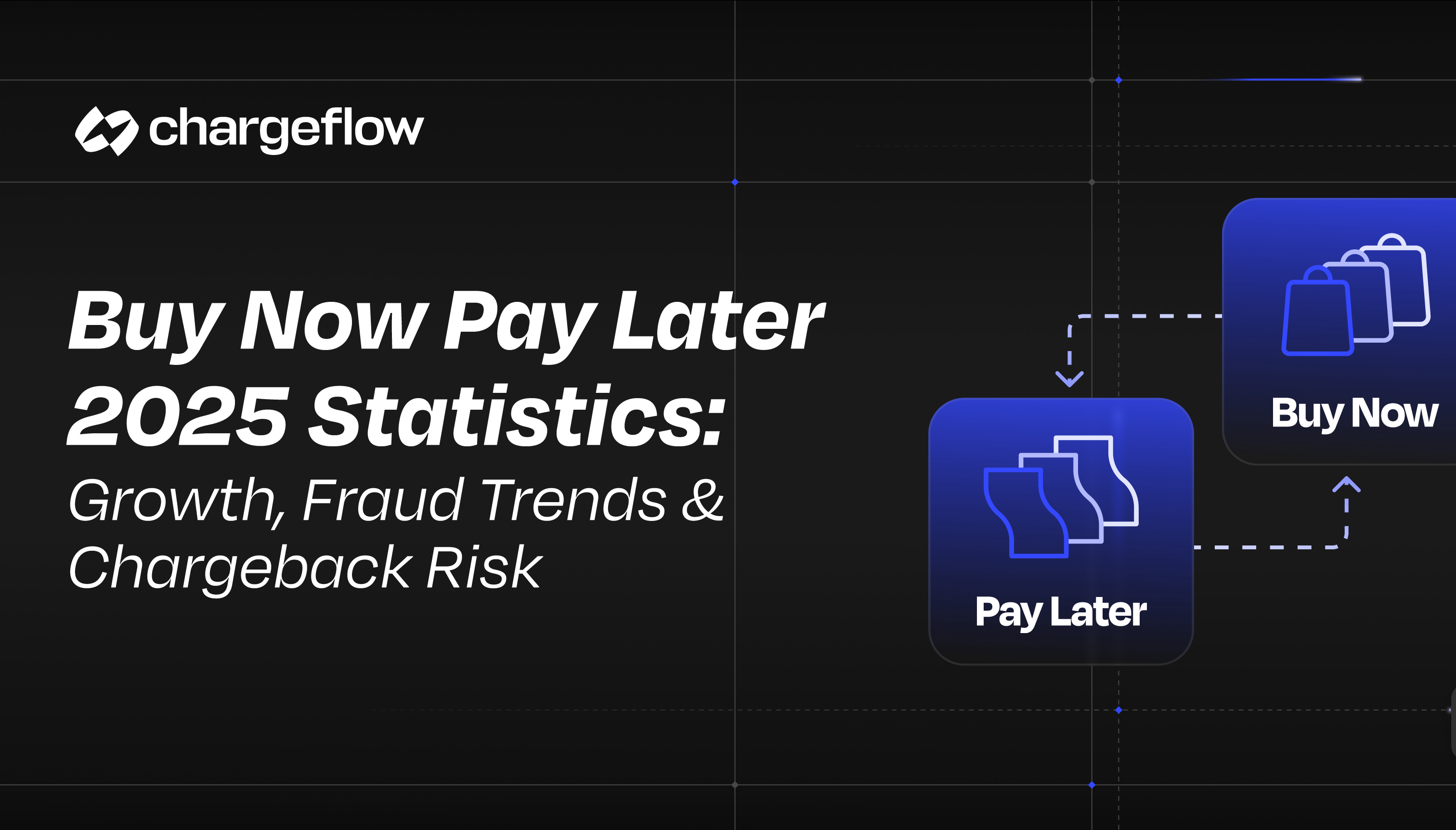Prepaid Card Chargeback: A Rising Threat to Merchants in 2023

Chargebacks?
No longer your problem.
Recover 4x more chargebacks and prevent up to 90% of incoming ones, powered by AI and a global network of 15,000 merchants.
Are prepaid card chargebacks hurting your business in 2023? Don't let this rising threat drain your profits. Learn how to protect yourself and business
As the e-commerce sector continues to grow and evolve, business owners need to remain vigilant about protecting their stores from fraud and cyberattacks. While online payment processing systems have made it easier for customers and businesses alike, there are also new threats that come with these technological advancements - one of which is prepaid card chargebacks.
With an increasingly young population turning to cashless cards as their preferred payment method in 2023, understanding what a chargeback is and how you can protect your store against them has become vital knowledge for any successful e-commerce merchant.
This blog post will provide you with comprehensive insights into this rapidly developing potential threat so you can proactively safeguard your assets against prepaid card chargebacks going forward.
Understanding Prepaid Card Chargebacks
In simple terms, a prepaid card chargeback is when a customer disputes a transaction made with their prepaid card by requesting a refund from the card issuer. As the concept of picking items as per market trend is growing this economy and fraud associated with it are also increasing with each passing day.
It can occur for a variety of reasons, including fraud, billing errors, or dissatisfaction with the product or service received.
Unlike traditional credit card chargebacks, prepaid card chargebacks do not involve issuing credit to the cardholder's account, as the funds were already loaded onto the card beforehand. Instead, the card issuer will investigate the dispute and determine whether to issue a refund or deny the claim.
It is important for businesses to understand the reasons for prepaid card chargebacks and take steps to minimize the risk of disputes, as they can be costly and damaging to their reputation.
Impact of Prepaid Card Chargebacks on Merchants
Prepaid card chargebacks can have significant and lasting impacts on merchants. Financially, they can be a costly and time-consuming burden, as chargebacks can often result in funds being transferred back to customers, as well as additional fees being charged to the merchant.
Additionally, high chargeback ratios can negatively affect a merchant's reputation, potentially leading to lost business opportunities and damage to their brand image. The consequences of a high chargeback ratio can be severe, including suspension of processing privileges, increased fees and restrictions, and even legal action in extreme cases.
It is vitally important for merchants to take steps to minimize the risk of chargebacks, including fraud prevention measures and clear communication with customers about refund and return policies. By managing chargebacks effectively, merchants can protect both their profits and their reputation in the marketplace.
Factors Contributing to Prepaid Card Chargebacks
Prepaid cards have seen a significant surge in popularity in recent years as many consumers choose them as a convenient and cost-effective alternative to traditional credit cards. However, this increase in usage has also led to a rise in fraudulent activity, with criminals targeting these vulnerable payment methods.
Factors contributing to prepaid card chargebacks are often related to consumer behavior trends, such as unintentional errors in inputting payment details, disputes over delivery and quality of goods or services, as well as more malicious attempts to falsely report unauthorized transactions.
In order to minimize chargeback rates, prepaid card providers must implement robust fraud detection and prevention measures, educate their customers on safe payment practices, and establish clear and concise policies and procedures for handling chargeback disputes.
Strategies for Preventing Prepaid Card Chargebacks
To prevent prepaid card chargebacks, issuers should implement strategies such as providing clear terms and conditions, monitoring transactions for potential fraud, and providing prompt customer support.
Additionally, issuers can require additional authentication steps for high-risk transactions, limit the amount of money that can be spent in a single transaction, and offer refunds or dispute resolution services to dissatisfied customers.
By implementing these strategies, issuers can minimize the risk of chargebacks and maintain customer satisfaction, ensuring the continued success of prepaid cards as a payment option.
Prepaid Card Chargeback Disputes and Resolutions
The first step in disputing a prepaid card chargeback is to gather all relevant information related to the transaction. This includes the receipt, invoice, or order confirmation, and any communication between you and the cardholder. Once you have this information, you can contact the card issuer to initiate the dispute process.
When contacting the card issuer, be sure to provide all relevant information and evidence that supports your position. This can include proof that the cardholder authorized the transaction, proof that the merchandise or services were delivered as promised, and any other documentation that supports your claim.
It's also important to be proactive in preventing chargebacks by maintaining accurate records. This includes keeping detailed records of all transactions, including the cardholder's name, the date of the transaction, and the amount charged. If a dispute arises, having these records readily available can help you quickly and effectively resolve the issue.
Prepaid Card Chargebacks and E-commerce
Prepaid Card Chargebacks and E-commerce go hand-in-hand, and online merchants face unique challenges due to the nature of their business. These challenges include high chargeback rates and fraudulent transactions, which can lead to significant financial losses.
In order to prevent prepaid card chargebacks in E-commerce, merchants can employ several strategies, such as accurately describing products and services, providing excellent customer service, and offering a clear refund and return policies.
Another effective way of reducing prepaid card chargebacks is through the use of technology. Merchants can utilize fraud prevention tools, such as address verification systems and card security codes, to reduce the risk of fraudulent transactions.
Furthermore, they can implement timely notifications and alerts to help detect suspicious activity and reduce the likelihood of chargebacks. By taking proactive measures to prevent prepaid card chargebacks and embrace technology, online merchants can ensure a seamless and secure online shopping experience for their customers.
Prepaid Card Chargebacks and Small Businesses Stores
Prepaid card chargebacks can have a significant impact on small businesses. They occur when customers dispute a transaction made on their prepaid card, resulting in the funds being returned to the customer's account.
It can leave small businesses in a difficult financial position, as they may not have the resources to cover the cost of the chargeback. Furthermore, a high number of chargebacks can damage a small business's reputation and even result in the termination of its merchant account.
To manage chargebacks effectively, small businesses can implement strategies such as providing clear and concise customer service policies, offering refunds or exchanges to dissatisfied customers, and maintaining detailed transaction records.
Seeking professional advice from a financial advisor, attorney, or merchant service provider can also be extremely helpful in navigating the complex processes and regulations of chargebacks. By proactively managing chargebacks, small businesses can mitigate their impact and protect their financial stability.
Final Thoughts
To conclude, prepaid card chargebacks are an increasing threat to merchants in 2023 and it's important for them to understand the reasons why. Merchants must also consider the potential impacts of a prepaid card chargeback as well as factors that can contribute to this occurrence. Strategies like implementing updated fraud prevention services can help to keep fraudulent activity at bay.
If a business experiences a dispute or resolution, consulting with an experienced chargeback mitigate company is recommended for best practices. Businesses adapting to e-commerce or focusing on small business stores should remain mindful of any related risks and take action promptly when dealing with chargebacks.
Finally, merchants need solutions that enable them to take proactive approaches instead of being reactive when it comes to preventing prepaid card chargebacks. Fortunately, technological advances have made it possible for businesses to automate their risk mitigation operations, making it easier than ever before.
With Chargeflow autopilot solutions, merchants can use automated rulesets and other advanced features that provide flexibility over customization and maximize dispute recovery success rates. So don't wait until it's too late; start recovering from prepaid card chargebacks today with Chargeflow reliable solutions!

Chargebacks?
No longer your problem.
Recover 4x more chargebacks and prevent up to 90% of incoming ones, powered by AI and a global network of 15,000 merchants.






























.png)








